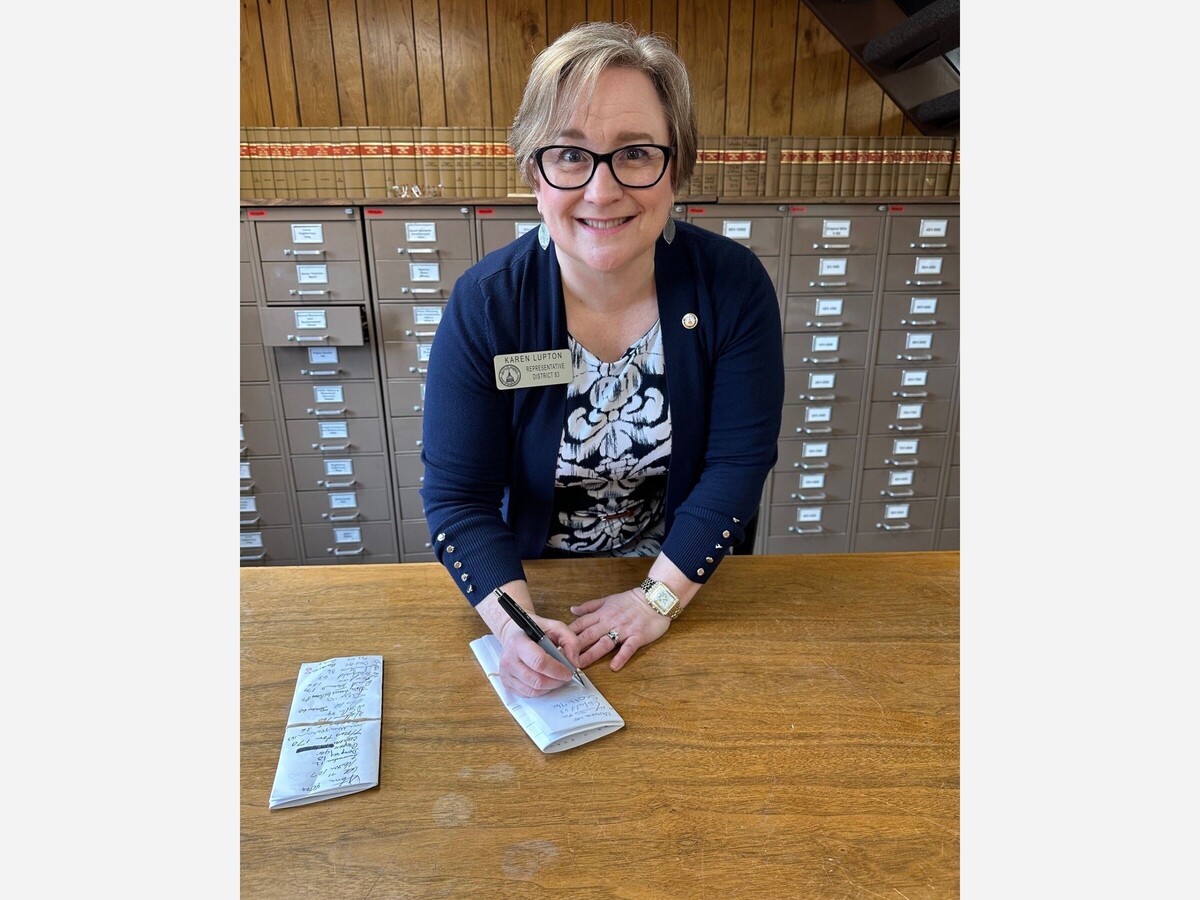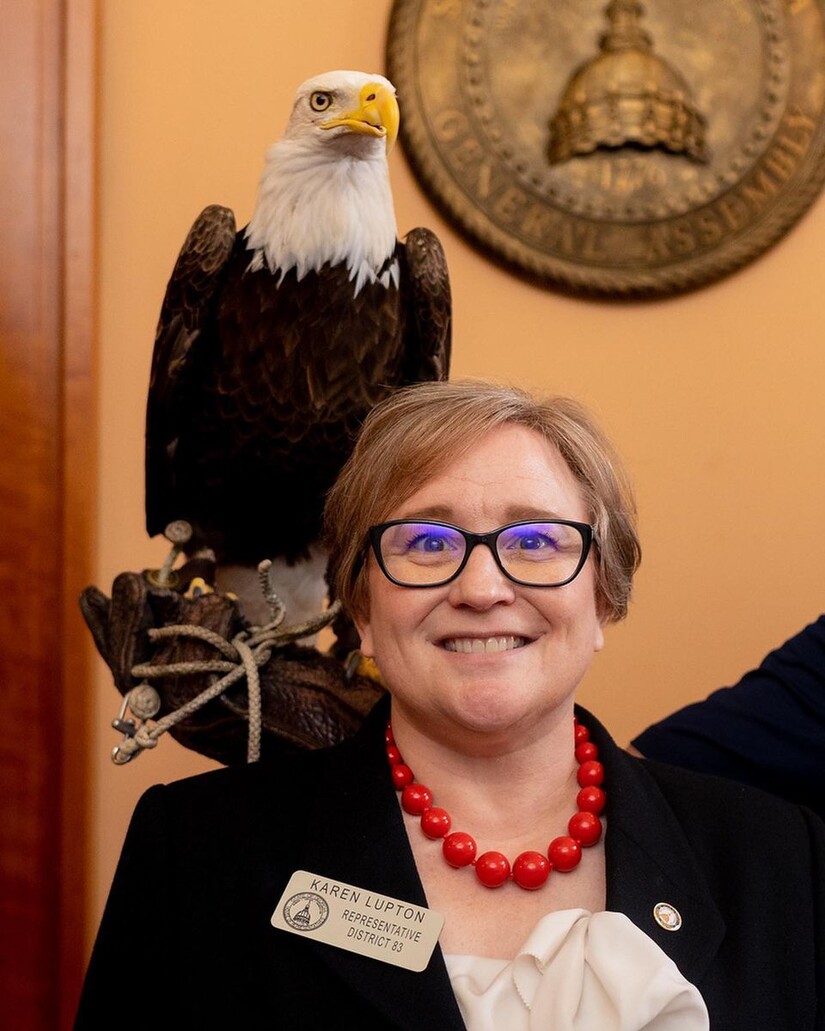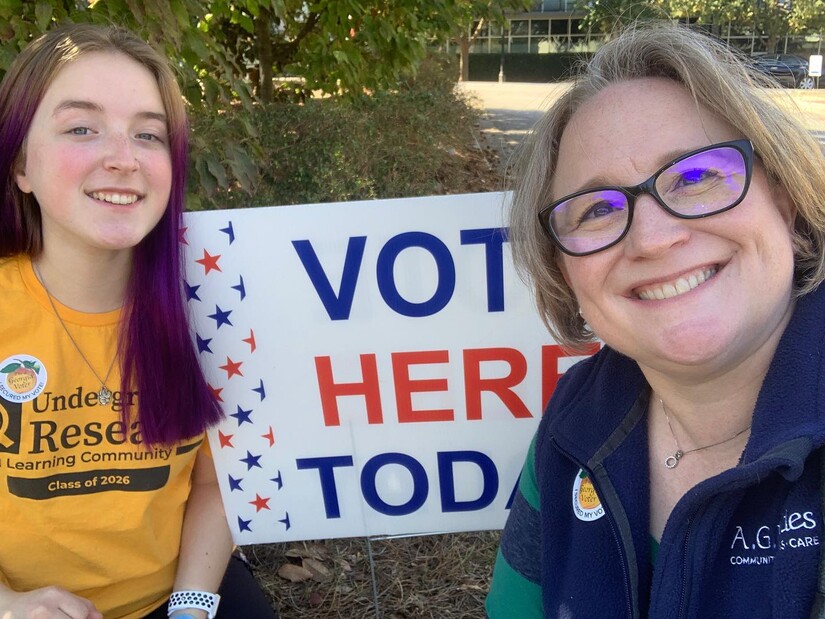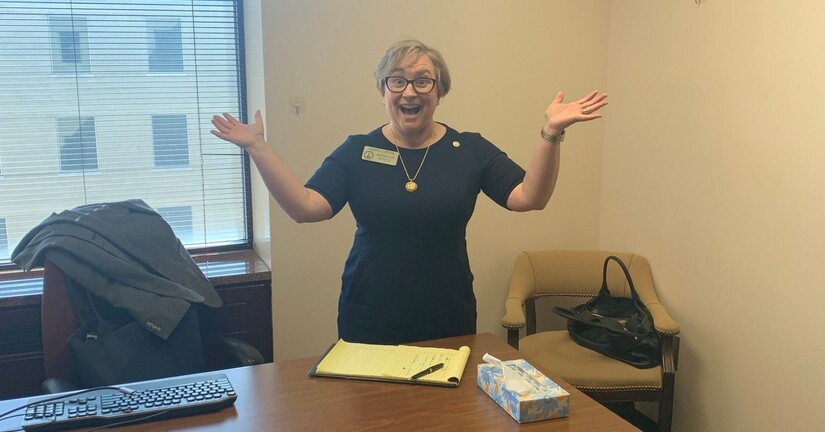Image


Karen Lupton signed as a co-sponsor onto two important bills recently. First, HB 71, protects the Okefenokee Swamp from pollution and destruction by mining. Also, HB 131, to provide in-state tuition for DACA students which, she notes, is “a bipartisan bill, believe it or not. I hope that both of these bills make it through our legislative process and become the law of the land.” #karen4ga #gapol #politics #DACA #dreamers #environmentalprotection
by Jane Stahl
Someone asked me once, “If you could, what TV show or movie would you want to join if it existed in real life?”
I didn’t have to think about it: I’d want to be one of the reporters on the TV series Newsroom. And while I loved my career as a high school English teacher, I’d love to live a second one as a political reporter, staff member, or member of the housekeeping staff of a political candidate.
I have no mechanical abilities whatsoever, but witnessing the in’s and out’s of the political machine and the inner workings of the minds of the pols intrigues me. Given a second choice, I’d apply to a college or university in DC…just to be in the vicinity of the drama of the day! BTW: my preference of a third life would be as a Buddhist monk.
And so, when I learned that BASH graduate Karen Lupton had just won a seat in Georgia’s House of Representative, I couldn’t wait to talk with her; and the experience didn’t disappoint!

Interestingly, Karen attended Eastern University, a private Christian university in St. Davids, Pennsylvania, with plans to enter the seminary and become a Biblical scholar. Instead, when the university—held in an old estate—came into funding through a freak find of a hand-written sheet of music created by Mozart, a music school was established, Karen happened to take a music course that led to her graduation as the university’s first vocal performance graduate and the third student matriculating with a major in music.
Those of us who knew her while she was at BASH are not surprised as she’d taken full advantage of the music options, and she affirms that her educational experiences in music and the arts offered in Boyertown School District are the best she’s witnessed anywhere. Following graduation, she sang professionally and semi-professionally for 20 years, but, “Don’t ask me to sing today,” she warns: “My ‘voice has ‘gone to seed,’ the pipes’ are ‘rusted’ from too much rest!”
Educational issues are one area in which she hopes to make a difference as a legislator as schools are chronically underfunded, especially small school districts that need to pick up the costs. She noted that Georgia schools typically don’t meet the recommended number of nurses, counselors, librarians per student. My own experience as a public school teacher witnessing annual debates developing school budgets and recalling conversations with my mother, a school nurse with the Boyertown School District for decades, suggest that the issue is a timeless, shared concern.
A second area of Karen’s work is health care. Georgia’s governor promises to have a better plan than providing more care available through Medicaid, but has yet to deliver. A third area is affordable housing for a workforce that businesses want to bring to the state. “Affordable housing has been a problem for years,” Karen explains. “Georgia is a landlord-friendly state; and now that business leaders are pushing for it for their workforce, I’m hopeful that we’ll have movement on providing affordable workforce housing.”
Querying Karen about content concerns—especially in regard to American history lessons—led to her endorsement of teachers. “They shouldn’t have to worry about losing their jobs because a parent objected to something that was said in the classroom. Teachers are professionals, deserve our respect and trust. They’re busy grading papers. And if Georgia wants to attract quality educators, they can’t be scaring them away.”
Continuing reflections on points of contention in the national conversation, she notes, “Sadly, while there are no longer Rebel flags flying at the State House and some of the Confederate monuments have been relocated to less public sites, there is still a ‘lost cause’ sentiment among an existing white supremist culture that is ‘sorry, not sorry’ about the stance the South took in the nation’s war against itself.”
Buffering her perspective, she offers, “Yet, Southern hospitality is a real thing. People are genuinely friendly and will start conversations—real conversations, not just a polite ‘hello,’ at the grocery store. I become aware of it when I visit the Northeast and remember the reticence of the area in which I grew up,” she continues.
Karen’s move into the political arena began as a City Council member in her community after her children “could cut their own meat and dress themselves,” she explains. “My win then over a 12-year incumbent was a surprise; but several years later when a seat for House Representative became open and I was invited to consider running for the office, the daily news was portraying politics as so contentious, such a food fight atmosphere, that I was hesitant to say ‘yes,’ so I reached out to a colleague who invited me to ‘come and see us at work.’
“What I found was that there was much more camaraderie, collegiality, and compromise around issues than expected. Most votes were unanimous after very civil discussions. And, of course, that kind of legislating doesn’t get much media attention! Compromise is not exciting. I was heartened by the bipartisanship I witnessed.
“And what I learned is that it’s all about building relationships across the aisle. I can do that. It’s still true; the big fights get ugly, but it’s one step at a time opening minds to other ways to look at things.”
Karen came naturally to public service. Her great grandfather owned A.W. Mercer; she witnessed his generosity to civic organizations; her grandparents were civically involved, always attending parades and events, serving in public office. “We were engulfed with the community—especially sports and music. It was never expected that things would just get done on their own,” she shares. “The expectation was to step up and help, volunteer, sponsor, donate, create!
“And so when I was disturbed with happenings in my community, I could cry or get involved. Happily, running was easier and more pleasant than I anticipated. Georgia has a sophisticated data collection operation. I visit households that have been determined to be friendly.
“I can knock on a door and know what issue may need discussion or what issue the residents may be interested in discussing. I know how they have voted in the past. It’s way less confrontational than I expected. Again, it’s about developing relationships,” she concludes.

Sadly for Boyertown, Karen fell in love and was swept away by a Georgia resident after college. But knowing she’s in a battleground state at this time in the country’s history is a comfort! We’re proud to know her, and she’s proud and excited to serve as a role model to others as her family and former teachers were to her.

Karen Lupton is a guest on the “B Inspired” podcast in which she shares her history and current passions. “B Inspired” can be found on your favorite podcast platform including Spotify, Anchor.fm, Google, Apple, and Castbox, for example.